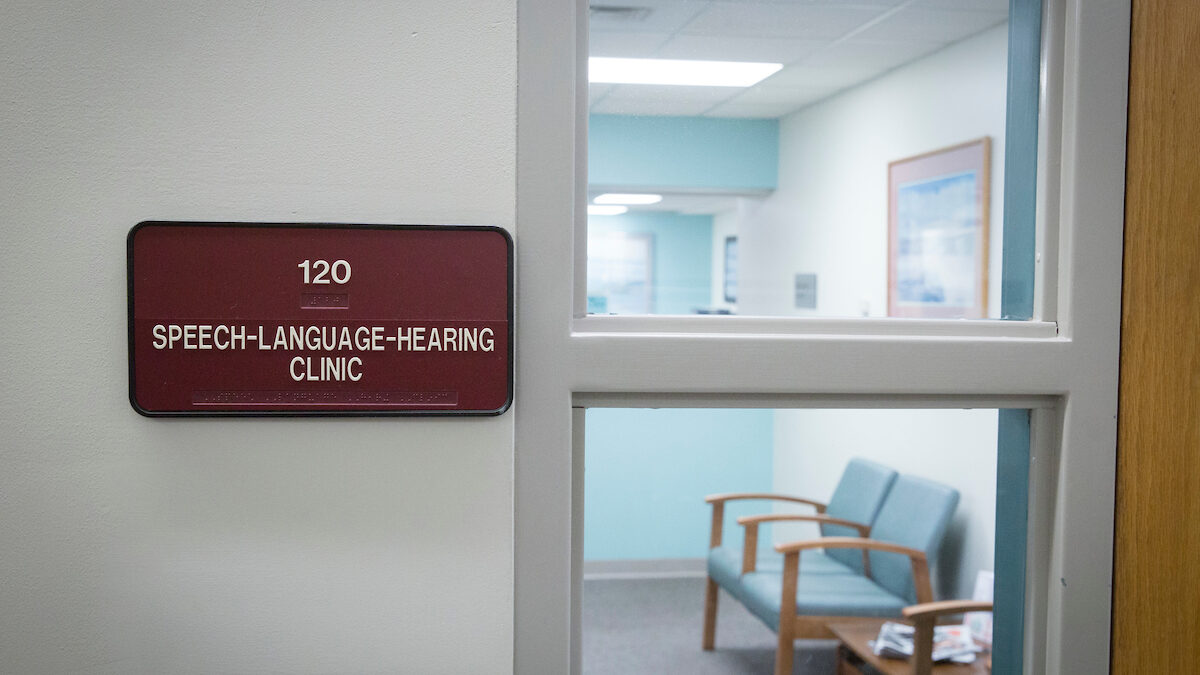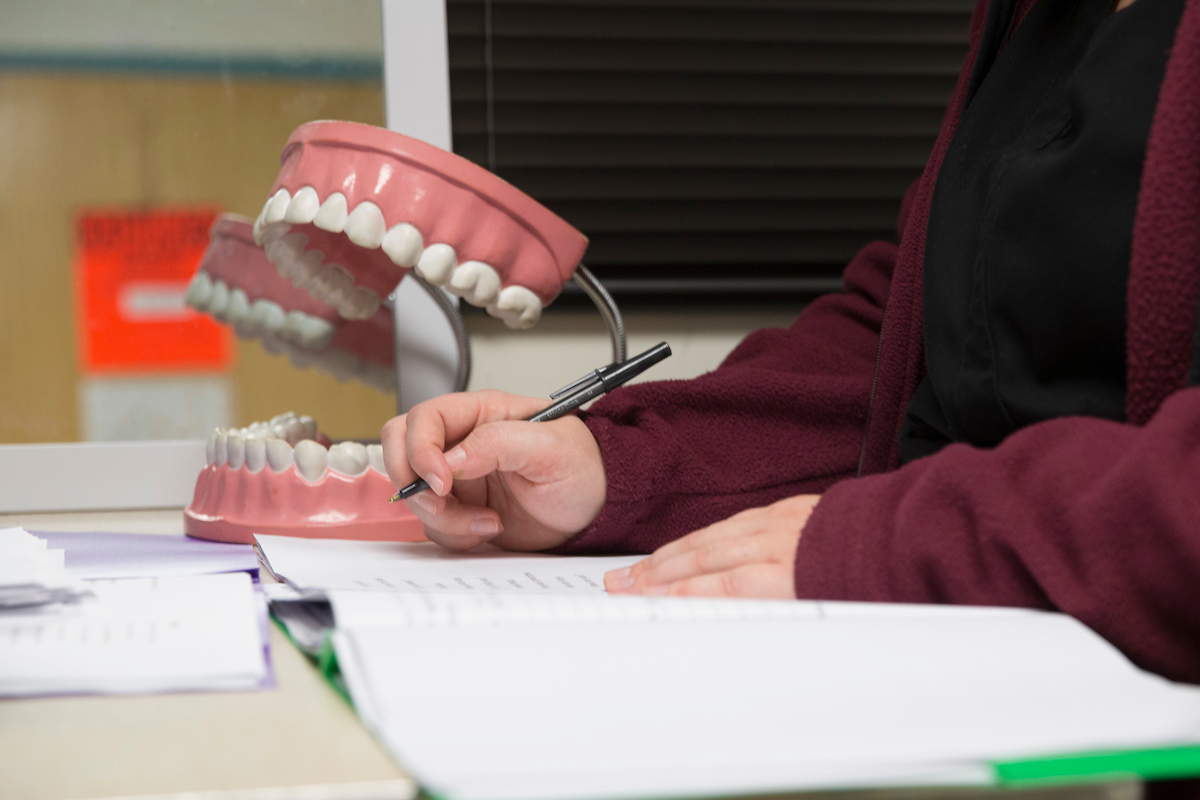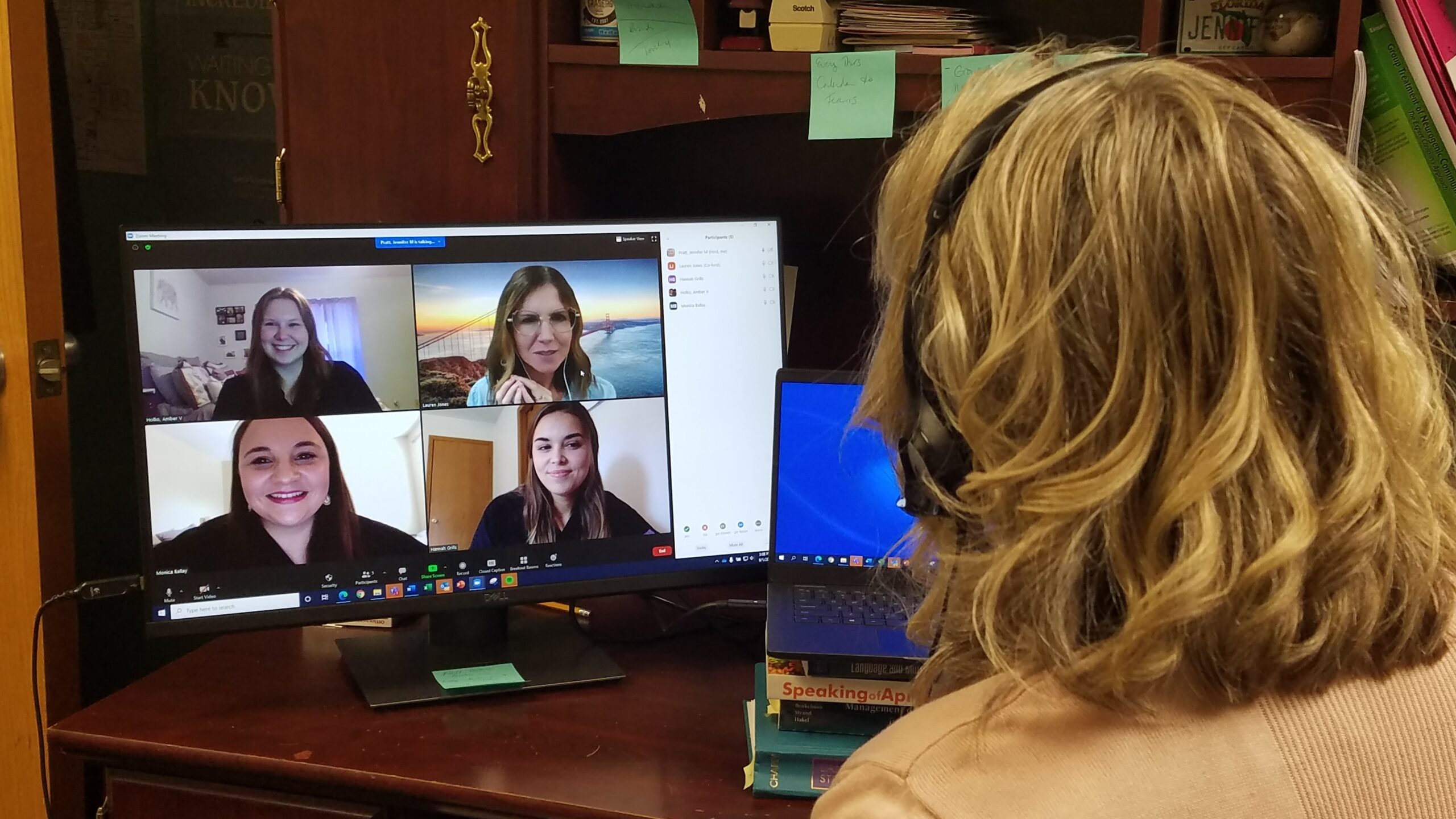March 17, 2020 is a day many MSU students and faculty won’t soon forget. In the middle of spring break, the university moved the remaining semester fully online because of the COVID-19 pandemic.
For the Speech, Language and Hearing Clinic, online instruction meant in-person therapy sessions with clients wasn’t an option.
So, they got to work.

Finishing spring 2020
Many speech-language pathology (SLP) graduate students clock clinical hours here. Practice in a real environment with actual clients, as opposed to simulated labs, accounts for more than 75% of their hours.
It was imperative, for students and patients, the clinic resumed operation as soon as possible.
“We wanted to be able to provide that community again,” said Lauren Jones, director of the Speech, Language and Hearing Clinic.
For the remainder of the semester, students used their limited simulation allowance to clock clinical hours, while faculty and staff ran the race to restructure the clinic for the summer.
Transitioning online
The move to a fully online clinic was multi-faceted.
The transition included switching student logins to multi-factor authentication to protect patient files accessed from outside the university. It was not an easy task.
“The team in information security helped push that through,” Jones said. “They advocated for us, and that was huge.”
After licensing Zoom accounts, securing information and making it accessible from home, the clinic logged on for teletherapy.

Summer 2020
For Jennifer Pratt, clinical associate professor of communication sciences and disorders, moving online worried her at first. She works primarily with stroke patients who have difficulty processing new information.
“I couldn’t envision how it was going to work without being right there with them,” Pratt said.
But Pratt’s meetings went better than she hoped.
“The clients adapted. They were comfortable in their homes. They were very productive with their work on the sessions,” Pratt said. “There were so many positive aspects of it, and it opened my eyes to a different way of delivering services and teaching our students.”
Students reinforce the success of the summer semester.
Before moving to teletherapy, students worked with patients one-on-one, with a supervisor watching from another room. On Zoom, they lead sessions in small groups.
Amber Holko, an SLP graduate student, loved the newfound collaboration with her peers.
“It was the most positive and constructive group assignment I’ve ever done,” Holko said. “We all gave 110% because we knew our assignment had a direct effect on our patients.”
Changes for the better
While group therapy is a temporary change for the clinic in the age of COVID-19, some changes may stick around.
Teletherapy is increasing in demand. Jones hopes the clinic can continue to offer the experience to students and patients, even after COVID-19.
“This situation opened our eyes to the importance of meeting the needs of our patients,” Jones said. “When the COVID situation improves, we’ll bring people back on site, but we are looking at offering more hybrid models in the future.”
Overall, the experience and the changes pair often with one word: positive.
“My takeaway from this time is asking, ‘Would we have done this if we hadn’t been forced?’” Pratt said. “It’s exciting to think about our opportunities for the future, and to see something good come out of this.”

